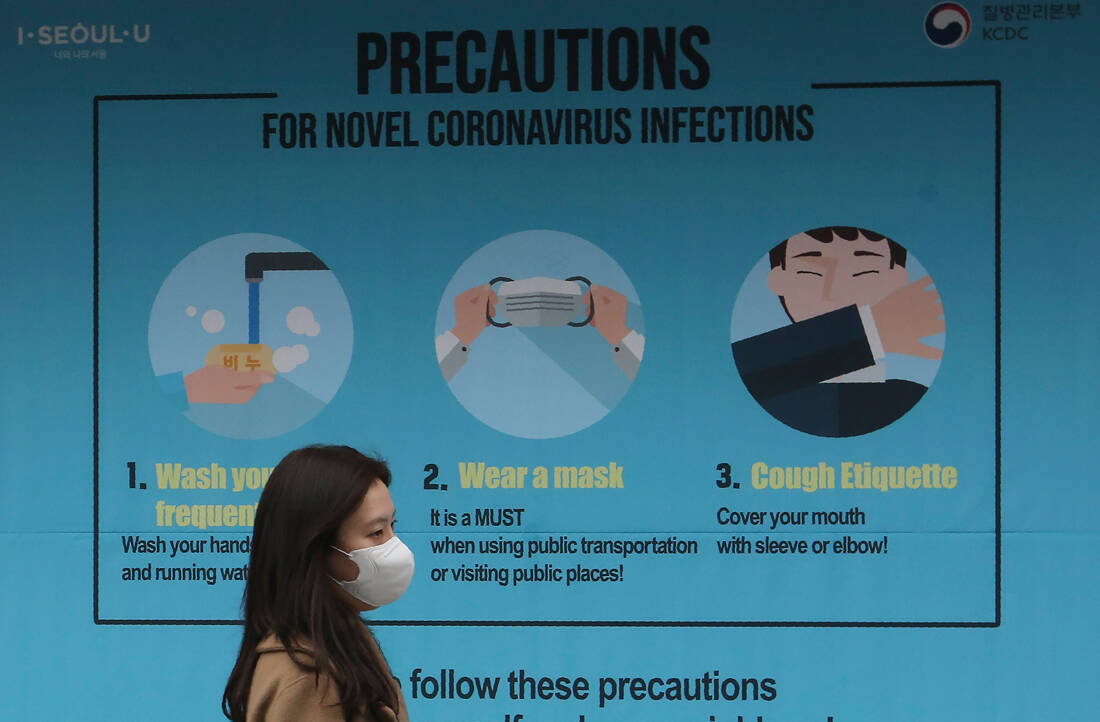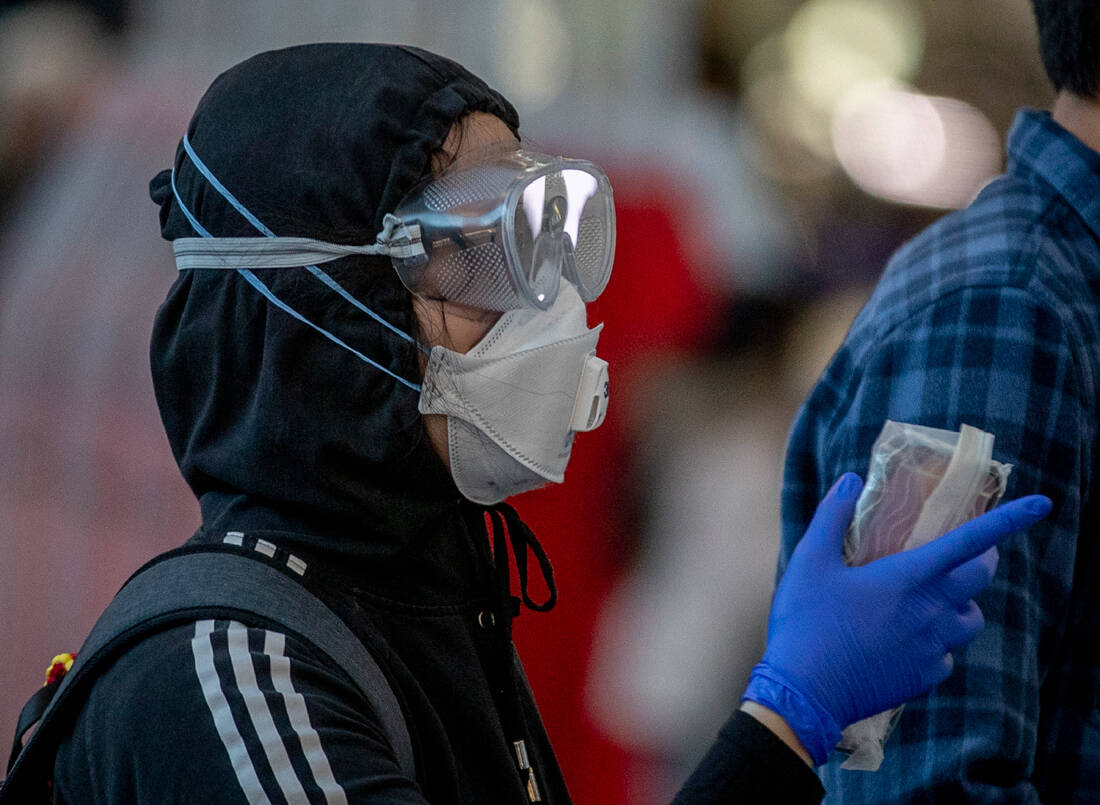The planet is in a dangerous circle since its pandemic coronavirus and states have been put on alert to deal with the threat of the virus spreading late last year in Wuhan. China.
Europe and the United States are already in turmoil, with countries such as Italy and Spain having paid a heavy tax, with many victims of the new coronavirus, and their health systems being in dire straits.
In Greece, new cases and deaths are announced every day, however, according to the measurements, the upward curve of the spread of the virus follows a milder course.
"In the coming days the crisis will peak in European countries"
In difficult times like this, people are accustomed to seeking answers from scientists.

On Tuesday, March 24, we contacted Georgios Androulakis, Associate Professor of the Department of Public Administration and Business at the University of Patras, who is approaching the epidemic with mathematical models, talking about the period of peak and de-escalation of the phenomenon.
"The model we use explains the time course of the coronavirus spread, not the quantitative one. That is, he does not specialize in telling us how many cases we will have tomorrow, the day after tomorrow or in 10 days. The model specializes based on the course that has been recorded, to show in how many days it is expected to peak. This is the difference with other models that exist, that it focuses on the temporal evolution and not on the arithmetic, the quantitative one "says Mr. Androulakis.
The professor, who specializes in Quantitative Methods, makes an overview of the phenomenon:
"We have a long way to go, because in America the evolution of the phenomenon is now beginning. In Europe, the countries are expected to start peaking one by one in the next 8 to 10 days. So we have a longer period ahead of us where we will unfortunately hear about bad things like Italy.
The numbers that one can imagine seeing that the time evolution will continue at this rate for 1 month are very large. Some areas that were not included until now are in progress. Spain, for example, follows the path of Italy. We all wish to be refuted, but the numbers show that. England may follow suit. And I can not imagine what will happen, for example, in the very big cities of America, New York, Los Angeles. Or in Turkey, Istanbul, a city with millions of people. "If things get out of hand there I can not imagine what numbers it can reach."

What is the bet of the Greek authorities for the peak of the virus
But what does the professor say about the situation in Greece;
"In Greece, with the data before the traffic ban, there was a feeling that the peak will take place in the next 8 to 10 days. With the data that will be collected from Monday to Friday, it will be evaluated again if we managed to postpone the date of the peak a little. And I think that is the bet, what they are trying to achieve, to bring the phenomenon to a climax later for two reasons:
- And to enter the summer hoping that the temperature will extinguish the virus
- and not to test the endurance of the system, do not suddenly fill the intensive care units and hospitals with patients ".
But what is the main argument of Mr. Androulakis's study?
"On average, the time of the peak of the phenomenon is the same as the time of de-escalation. This is a second point that we must have in the back of our minds those of us who are not doctors and watch what happens. The longer it took to reach the top, the longer it will take to turn off. That is, we will then enter a phase where the cases will begin to decrease but the measures will not be lifted. "Because it will be dangerous not to regenerate the phenomenon."

Things could be worse in Greece
- What is the period that may be needed for its peak and de-escalation phenomenon;
"In China and South Korea, which has become a cycle, times have been roughly equal. That is, it took about two weeks to peak and another two weeks to go off. And gradually, if we look at it in time, the erasure takes a little longer than the beginning. In Europe, the data show that we will go in larger numbers. That is, in 3-4 weeks to peak, because the measures they use now are more stringent. We learn from what he has found us.
Therefore it will take more time. If we estimate that in about 7 to 1 days from now we will have the peak, for example in Greece, 2 weeks have already passed with meters, we are talking about 3 weeks after the next 10 days. So it may take 3 to 4 weeks.
In Greece we are in a state of escalation and even mild. "Things could be even worse."
- Does the fact that the escalation is mild mean that it will last longer?
"In my opinion, yes. Today's data show me that the peak for Greece will be in 6 to 9 days. With 8 or 9. most likely, therefore, to return to today, to the image we have at the moment, it will take another 6 to 9 days from then ".

- Then will the recession follow?
"The recession but in the same way. The cases will not go away, and then he will want some attention. Now I do not speak like a mathematician, but humanely. When the euphoric atmosphere begins, that things are going well. There needs to be some attention. Because watching the data of South Korea, it is now 7 days that they have started to increase their numbers again, as if there is a beginning of a second cycle. This is justified by the fact that people return from abroad, however we also have in Greece. So many people are trapped around. He will be back sometime. There is no return to normalcy. "
The mathematical model used by economic analysts
"The model we use is not statistical. Most of the models that are used and we have seen these days, which make quantitative forecasts, come from the field of econometrics, that is, from the analysts of financial data who constantly analyze stock time series. Stock indices, economic indicators. That's where most of the tools that exist come from. Even epidemic models used in medicine are based on such tools.
The difference of this model is that it takes the points of the time series and calculates a specific indicator that is characteristic of the phenomenon and not of the numbers we see in front of us. If we knew this number, which is called the receiving constant, if we knew this constant for this phenomenon we could determine exactly when the maximum will occur. Exactly. With absolute precision. Because we do not know her, this method tries to approach her.
This receiving constant is therefore characteristic of the unknown function behind its propagation phenomenon. This enables him to measure when something will happen, but not be able to tell us how much it will be. This is the difference, "Mr. Androulakis told us.
- But what are the differences from country to country?
"Countries have different factors because each follows its own policy. If we imagine the phenomenon as global, it is one or the constant. Each country if this phenomenon lasted too long would arrive and would have the same stability. The phenomenon is the same, just its intensity differs in each country depending on the measures taken. So taking the data from only one country, we measure a small part of the general function that concerns that country and the way in which it deals with the issue ".

The results of the measures of the Greek government
Have any results been seen from the measures taken by the Greek government?
"With the previous package, the estimate for Greece was that the peak will occur on March 28. This has already gone for the first days of April. So the result of those measures is the postponement of the time by one week ", stressed the professor.
- How do you judge the measures taken?
"We do not have all the information. If we look at it from the point of view of democracy, it is clearly too much. But if we come to the place of these people who make a decision and have in front of them the danger that the intensive care units will suddenly fill up and people will start dying on the street, there I give a very solid excuse for what has happened.
Also - escaping from the scientific field - it is not good to exhaust all the measures you have in a very short time. But we do not have all the information. All this information gathered by the people who make the decisions - I'm not talking at the political level, I'm talking about the infectious disease specialists, the committee that is involved - I think they are probably doing so wisely so far. This has been seen. At least in relation to other countries which did not pay so much attention at the beginning, it seems that we had the results ".

Mr. Androulakis also spoke about its measure quarantine;
"Given the global panic that has been created, it is certain that we are taking stricter measures than we should. That is, at the moment we are talking about, there are more victims of the flu worldwide than of the coronavirus. We did not take any crazy measures to avoid the transmission of the flu. It is the form of this virus of course that is much more aggressive than a flu, which has created panic.
However for those who die of starvation, no one cares in any way. I think that as time goes by and we get used to the idea, we will demystify it. At the moment we have an exaggeration in our reaction. But when the other is anxious if he will live, he is not cool enough to discuss such matters.
Now staying home for 15-20 days may not be a problem. But if you stay 2, 3 or 4 months?
As for the future, the professor spoke rather with skepticism:
"I'm not a doctor, but just as the H1N1 virus came and went, so did this virus I do not think it will disappear. Even if the vaccine is found, it will stay somewhere at some point. So a possible mutation of it would possibly be aggressive. "I do not think that what has happened is a good development."
